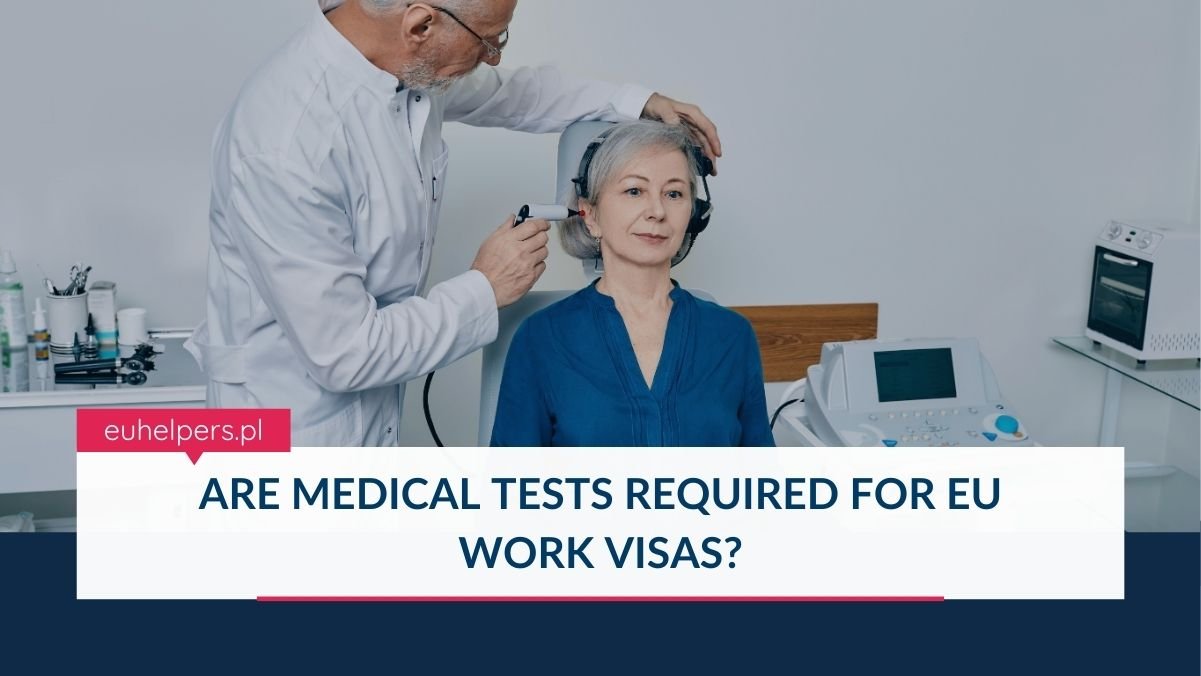
Many applicants planning to work in Europe want to know whether medical tests are required as part of the work visa or residence permit process. While requirements differ by country, most EU nations expect foreign workers to meet basic health standards to ensure workplace safety and public health protection. This article explains when medical tests are needed, what types of health checks may be required, and how different EU countries handle medical fitness rules.
Do EU Countries Require Medical Tests for Work Visas?
Most EU countries do not require a mandatory medical test at the visa application stage. However, several EU nations may request health certificates, vaccination proof, or pre-employment medical checks after arrival or during residence permit processing.
The exact requirement depends on the country, job type, and employer.
Why Medical Tests May Be Required
EU countries follow health and safety regulations to protect workers and the public. Medical checks may be required in the following situations:
-
Jobs involving physical labour
-
Roles in food production, hospitality, and caregiving
-
Employment in healthcare or childcare
-
Workstations where occupational safety is critical
-
Long-term residence permits that involve public health assessment
These tests help employers ensure fitness for duty and compliance with national labour rules.
Types of Medical Tests Commonly Requested
Medical checks vary across EU countries, but may include:
-
General physical examination
-
Basic blood and urine tests
-
Chest X-ray for tuberculosis screening
-
Vaccination records (especially for healthcare workers)
-
Occupational health fitness certificates
-
Drug and alcohol screening in some industries
Most tests are simple and can be completed in certified clinics in the applicant’s home country or after arriving in Europe.
Country-Wise Overview
Poland
Poland usually does not ask for medical tests during visa processing, but employers commonly require an occupational health certificate after arrival.
Germany
Germany does not mandate medical tests for most work visas, except for certain roles in healthcare and childcare.
Czechia
Some employers may request a basic health certificate. Seasonal workers may require additional tests depending on the sector.
Slovakia
Blue-collar workers may be asked to complete health checks once they start work.
Portugal, Spain, Greece
Checks are minimal for visa issuance, but some industries (hospitality, agriculture, caregiving) require medical clearance after arrival.
Finland and Sweden
No medical tests during visa submission, but employers may require fitness certificates depending on the job role.
When Are Medical Tests Not Required?
Medical tests are usually not required when:
-
Applying for short-term seasonal work
-
Working in low-risk sectors
-
The employer does not require occupational health clearance
-
The visa category does not mandate health screening
However, applicants should always check employer-specific requirements.
Tips for Applicants
-
Keep your vaccination records updated
-
Obtain a basic health certificate from a recognized clinic
-
Confirm requirements with your employer before travelling
-
Follow the health and safety rules once employed in Europe
-
Keep copies of all medical reports for future renewals or job changes
Conclusion
Medical tests for EU work visas are generally not mandatory during the visa application stage, but certain jobs and sectors require health checks either before employment or after arrival. Requirements differ across EU countries, so applicants should follow employer instructions and verify national regulations before applying.
EUHelpers always recommends keeping your health documents ready to avoid delays.
